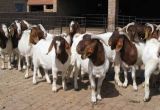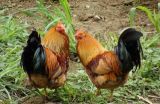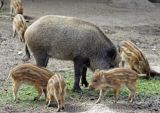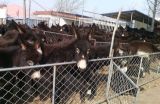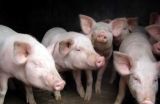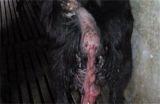河北省肉牛养殖对当地经济的影响如何?

Answer:
Positive Impacts:
- Employment generation: The meat cattle industry directly employs thousands of people in farming, processing, and related sectors.
- Income generation: Meat cattle farming is a major source of income for farmers, ranchers, and other agricultural workers.
- Economic diversification: Meat cattle production diversifies the local economy by attracting investment and creating new businesses.
- Rural development: Meat cattle farms often locate in rural areas, stimulating economic development and infrastructure growth.
- Food security: Meat cattle provide a reliable source of protein for the local population and regional markets.
Negative Impacts:
- Environmental impact: Livestock production, including cattle, can have a significant impact on the environment, including greenhouse gas emissions, water pollution, and land degradation.
- Animal welfare concerns: Intensive animal farming practices can raise ethical concerns about animal welfare and animal rights.
- Disease outbreaks: Livestock can be susceptible to diseases, which can spread to humans and have a negative impact on public health.
- Competition for resources: Meat cattle require significant resources, including water, feed, and land, which can compete with other agricultural and industrial uses.
- Market fluctuations: Meat prices can fluctuate significantly, which can affect farmers' incomes and profitability.
Overall, the positive impacts of meat cattle farming on the local economy outweigh the negative impacts in many cases. However, it is important to consider the environmental and ethical implications of the industry.
Additional Considerations:
- The impact of meat cattle farming can vary depending on factors such as farm size, management practices, and location.
- The industry is constantly evolving, with efforts to improve animal welfare and reduce environmental impact.
- The overall economic and social benefits of meat cattle farming should be carefully evaluated by local communities and decision-makers.









